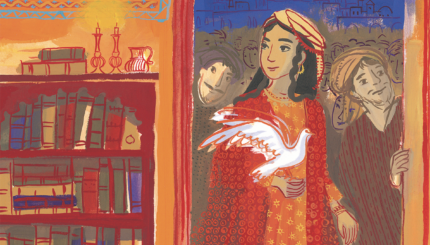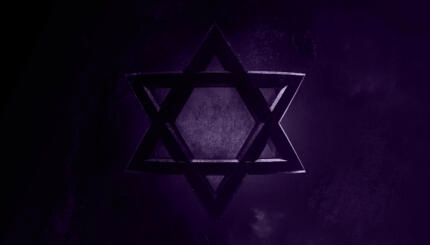Having “pride” in my humanity means saying “YES” to climate change (the good kind) and dedicating myself to work for it.
How did I get here? Let’s revisit Tuesday, June 9th at the 22nd Annual Pride Memorial Vigil. While honoring the lives claimed by anti-LGBTQ violence, I mourned for my people. In doing so, I mourned for the greater culture that allowed oppression to become the norm, and for the culture that still condones countless forms of oppression and persecution today.
Through the course of attending this vigil and “Pride Months” past, I have come to understand that there can be no “pride” without shared moments of grief and communal healing to center us in this month’s purpose.
Though we all hold different life experiences, what binds our fates together are shared histories of oppression – and a sense of cross-communal responsibility to those whose oppression is still ongoing and stifling.
Truly, nothing could be more important than memorializing where we have come from, and where we still have yet to go.
In marking the deaths of LGBTQ persons both past and present, this vigil highlighted the reality that dangerous heterosexist and cissexist ideologies still exist, pervasively. My reflections on this gathering are disjointed, hampered by my moving first visit to the Boston Holocaust Memorial and being dazed by grief and inspiration.
The Memorial, in short, is stunning. Six glass towers are lined on all surfaces with the six million identification numbers once tattooed upon the arms of Holocaust victims. The architecture is designed to allow visitors to hold their own arms against the glass, and see a number reflected back against them. Engraved in the glass are powerful statements from Holocaust survivors and allies, revealing the scope of the Nazis’ victims. Marble inscriptions of the Hebrew word for “Remember” flank the memorial on either side, and visitors have lined the path with stones in Jewish memorial observance, paying homage to the individuals this memorial stands for now.
Fittingly, this location signifies interfaith communities’ stake in LGBTQ solidarity. Because on a greater scale, bearing witness to LGBTQ loss speaks to cross-community survival. Moreover, memorializing in this way marks that many of those lost during the Holocaust were queer, transgender, and gender non-conforming, as well as those classified as being “racially inferior.”
In my heart, Holocaust memorials will always signify the persecution, mass terrorization, targeted attack, and loss of personhood of peoples both past and present.
Standing above the memorial’s steaming grates simulating the suffocating gas chambers, it is no accident that I immediately thought of Eric Garner. The senseless racism and violence at the pool party one week ago in McKinney, Texas. The eruption of transphobic aggression and slurs in the media and the social environment. The Muslim woman refused a sealed beverage on an airline with remarks symptomatic of nationwide Islamophobia. The countless transwomen of color brutally attacked, abducted, or murdered – and who have received neither justice nor recognition. The three Muslim students murdered earlier this February in Chapel Hill, NC. The events in Baltimore, in Ferguson, and in every city where police brutality represses the citizens they “aim to protect.” And mere days ago, the sickening massacre of nine black people observing their faith at the notable Emanuel AME Church in Charleston, SC by a known white supremacist.
For all the people whose names we remember, and for all the people whose names we will sadly never know. We must honor them. And we must work to end this injustice.
The reality of the year 2015 (and Hebrew Year 5775) is that all these acts of violence and crimes of hate – and many, many more – persist daily in the United States.
The only Pride Month I can celebrate is one that prioritizes justice and humanity for all. The struggle should not get to be over for some, and eternal for others. In this world where pride is still a luxury for many, we must lend our communal resources to our siblings in need. Memorial vigils allow us to justify our pride, to remember the precious lives our communities have lost, and the loved ones we continue to lose through our quest for life and liberation.
In closing, I point us to the immortal words transcribed in Pirkei Avot: “If I am not for myself, who will be for me? And when I am for myself, what am ‘I’? And if not now, when?”
To Pride-goers of my generation: I encourage us all to examine the ways inequality is still showing up for members of our own communities, and in communities outside of our own. Remember what we have lost, and how much is still yet to be gained. I promise, Pride festivities will be more enjoyable when everyone has cause for celebration.
Like this post?


